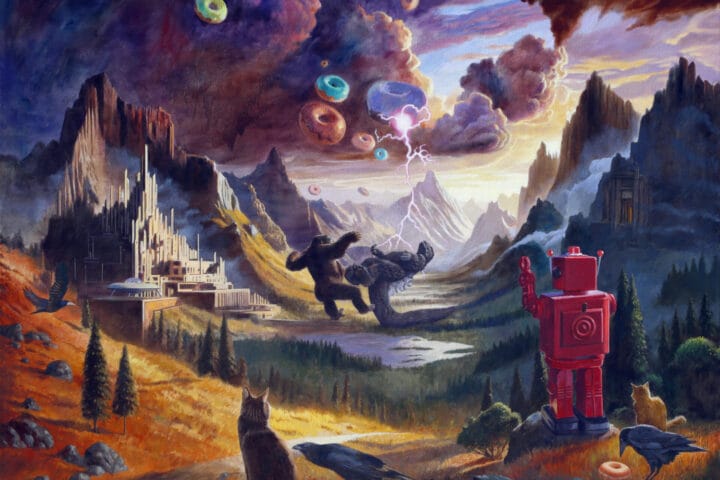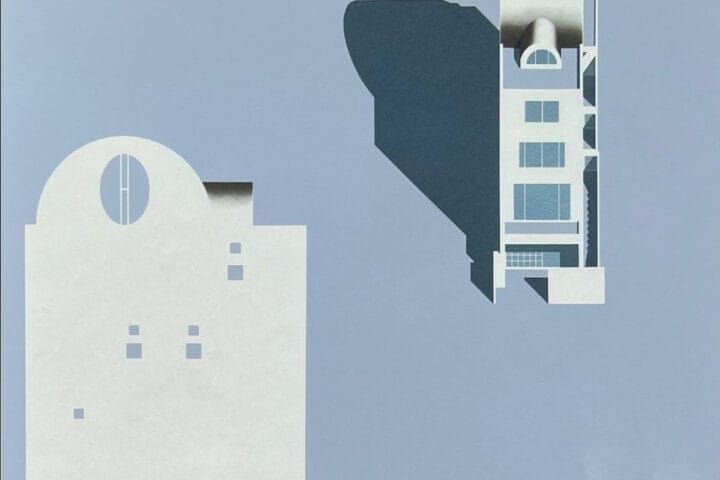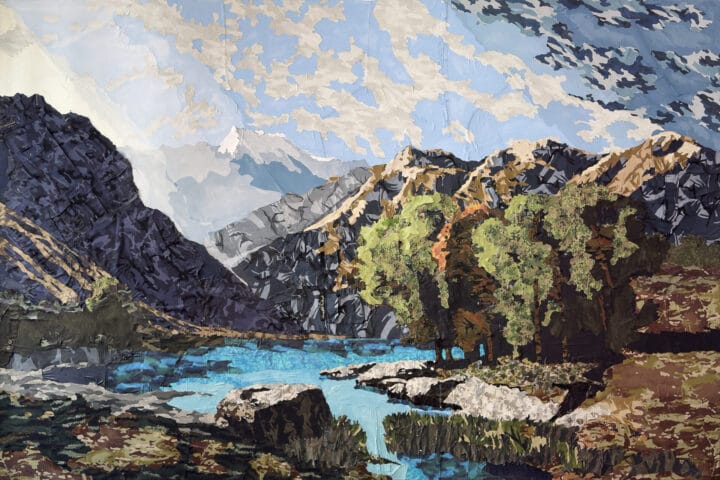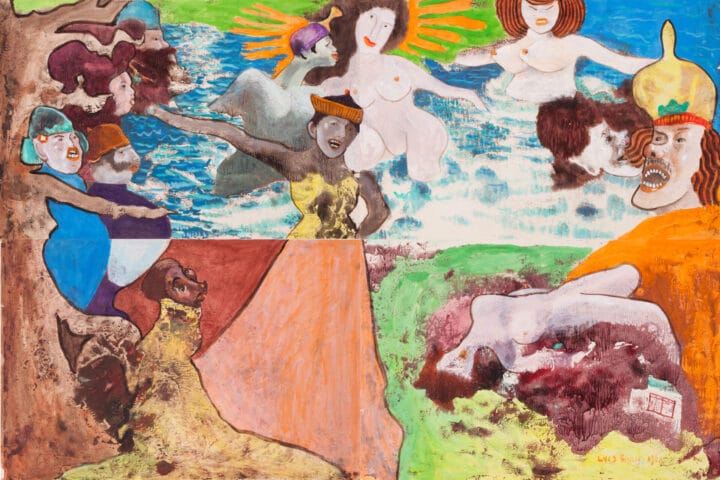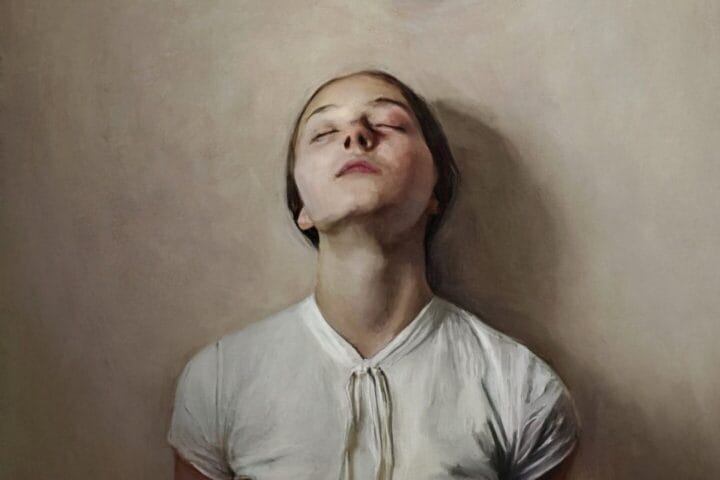New York – Pace Gallery is pleased to present Intermediaries, a solo exhibition bringing together discrete yet interrelated bodies of work created by Tara Donovan throughout 2019 and 2020. Based in Donovan’s rigorous investigatory methods and aggregative logic, the exhibition’s drawings, wall-bound pieces, and free-standing sculptures transform commonplace materials into totalities that test our perceptual limits. Intermediaries also articulates the artist’s ever-deepening exploration of art’s capacity to mediate phenomenological encounters that interconnect viewers to one another and their environment. Opening on January 15, 2021, the exhibition will take place on the first floor and library of 540 West 25th Street in Chelsea and run through February 27, 2021.
The exhibition’s primary concept underscores the structural and material openness of Donovan’s works, which are less to be looked at than looked through. Her art’s capacity to filter and reconfigure vision is most apparent in her free-standing, large-scale sculptures, made of transparent materials that refract light and distort their surrounding space. Stacked Grid (2020), for example, is marked by an orthogonality and monumentality that parallels and heightens the “white cube” of the gallery. Yet it simultaneously thwarts the rationality of the grid that is at the structural core of both the sculpture and its architectural context. Through their aggregation and play with light, the work’s translucent building blocks turn the modernist grid into an evanescent, almost pixelated, entity that, at times, appears labyrinthian. If Minimalism was augured by Frank Stella’s dictum “what you see is what you see,” Donovan, though operating in a minimalist idiom, tacitly questions this foundational emphasis on the self-evidence of vision.
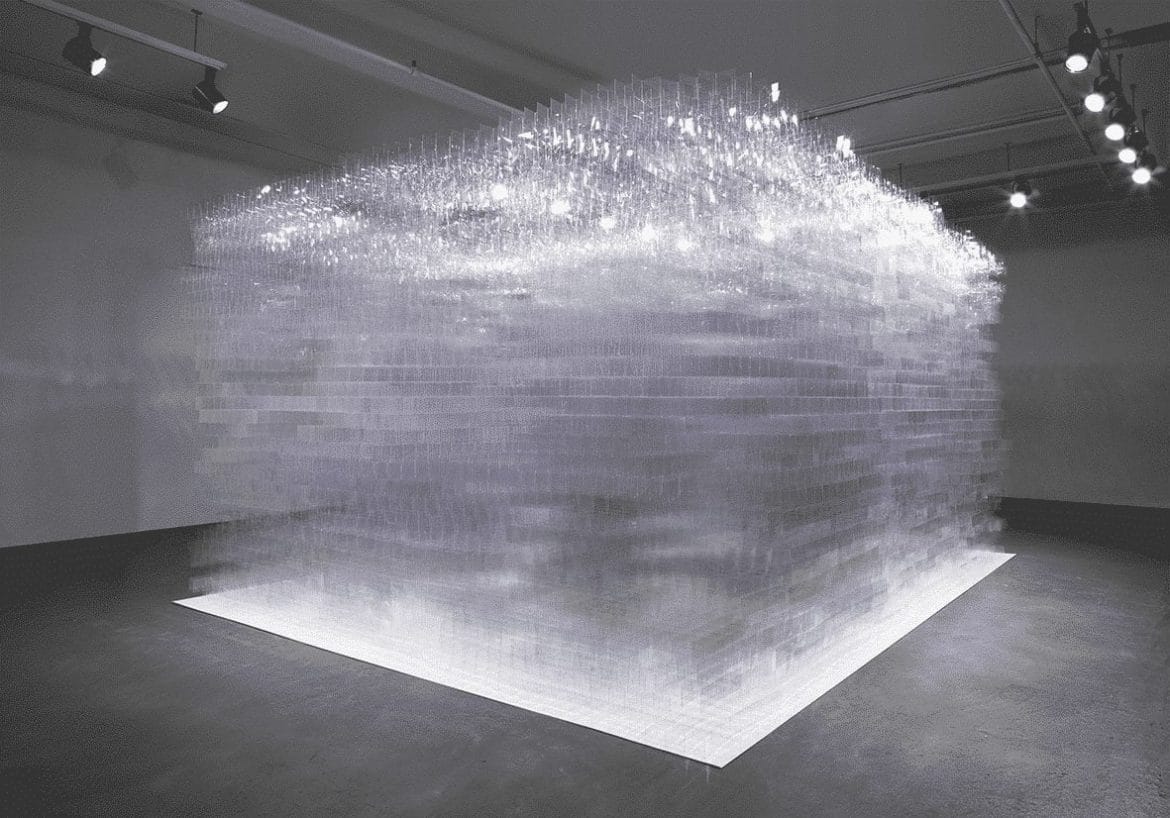
Stacked Grid’s engagement of architecture also points to the intermedial complexity characterizing all of the exhibition’s works. “Medium,” from the Latin medius or “middle,” is at its roots an intermediary, a middle position through which to convey or effect. Monolithic and monochromatic, Donovan’s black, wall-bound and framed
sculptures, Apertures (2020), are suspended in between painting and sculpture. From a distance, their austere shape and somber hue emanate a solemnity conducive to a hushed, meditative experience. Up close, however, they exude liveliness. A soft, spectral light, filtered through the works’ strata and enlivened by the viewer’s lateral motion, animates swirling surface patterns, created by hollow stirring sticks that channel light. This light, in turn, subtly, almost imperceptibly, offers an encounter that is psychosomatic as well as visual. In their conflation of darkness and light, absence and presence, stasis and dynamism, these works invite viewers to consider relationships and identities that outstrip simplistic dualities.
Based in a process of elimination and manipulation rather than accumulation, Donovan’s series of twenty-four drawings, titled Screen Drawings (2020), are the result of the artist’s meticulous interventions in the weave of metal screen fragments, which are coated in ink and pressed onto paper. Leveraging as much as disturbing the mathematical regularity of the grid, the drawings attune the eye to subtle shifts in pattern, the ambiguity of figureground relations, and instability of form. Housed in Pace’s first floor library, a series of 13 large-scale drawings was similarly created through the use of malleable fiberglass screens, stretched into a variety of patterns. These works’ layered compositions—whose all-over, optical effects range from intense vibrations to aquatic dissolutions—not only suggest movement but also encourage an ambulatory experience that combines seeing and feeling, eye and body. As materials that typically cover windows and hence filter the gaze, the screens forming the field of these two series point to vision as an always mediated phenomenon, even in the moment of creation. To “draw” these works, the artist had to look through and past the screen, translating their textile-like materiality into two-dimensional, graphic markings. By yet again mobilizing the grid, which has long served as the infrastructure of vision in both art (e.g., the perspectival scaffolding of Renaissance painting) and science (treatises on physiological optics are rife with diagrammatic grids), Donovan parses and breaks through this paradigm in the search for new perceptual models, new intermediaries.
Sphere (2020) continues this investigation. Though offering a universally legible form, the massive sculpture complicates its pure geometry through its transparent materials, which bend light and open the work to its surrounds. Its metamorphic effects unfold gradually and indirectly, revealing their full potency when the viewer engages the
work in a triangulated encounter with others. As a go-between, the sculpture pushes the solitary phenomenological experiences devised by Minimalism into an interpersonal realm. The authoritative position of omniscience underwriting grids, especially the lattice of perspective, gives way to a kind of dynamic, embodied perception that is optimized when intersected by others in a moment of relational multiplicity.
Tara Donovan (b. 1969, New York) creates large-scale installations, sculptures, drawings, and prints, utilizing everyday objects to explore the transformative effects of accumulation and aggregation. By identifying and exploiting the usually overlooked physical properties of modest, mass-produced goods, Donovan creates ethereal works that challenge our perceptual habits and preconceptions. The atmospheric effects of her art align her with Light and Space artists, such as Robert Irwin and James Turrell, while her commitment to a laborious and site-responsive methodology links her to Postminimalist and Process artists, especially Eva Hesse, Jackie Winsor, Richard Serra, and Robert Morris. She has had major survey exhibitions at the Institute of Contemporary Art, Boston, which was also on view at the Museum of Contemporary Art San Diego, and Museum of Contemporary Art Denver, as well as a string of solo projects at the Metropolitan Museum of Art in New York, UCLA’s Hammer Museum, the Berkeley Art Museum, Smart Museum of Art, Indianapolis Museum of Art, Milwaukee Art Museum, Parrish Museum, and the Museum of Contemporary Art Cleveland, among others.
Pace is a leading contemporary art gallery representing many of the most significant international artists and estates of the twentieth and twenty-first centuries.
Under the leadership of President and CEO Marc Glimcher, Pace is a vital force within the art world and plays a critical role in shaping the history, creation, and engagement with modern and contemporary art. Since its founding by Arne Glimcher in 1960, Pace has developed a distinguished legacy for vibrant and dedicated relationships with renowned artists. As the gallery enters its seventh decade, Pace’s mission continues to be inspired by a drive to support the world’s most influential and innovative artists and to share their visionary work with people around the world.
Pace advances this mission through its dynamic global program, comprising ambitious exhibitions, artist projects, public installations, institutional collaborations, performances and interdisciplinary projects through Pace Live, and curatorial research and writing. Today, Pace has nine locations worldwide: two galleries in New York—including its newly opened headquarters at 540 West 25th Street, and an adjacent 8,000 sq. ft. exhibition space at 510 West 25th Street—as well as galleries in Palo Alto, London, Geneva, Hong Kong, and Seoul. In July 2020 Pace opened a temporary gallery space in East Hampton, New York that will be programmed through October 2021. Additionally, the gallery’s seasonal exhibition space in Palm Beach will be open through spring 2021.

